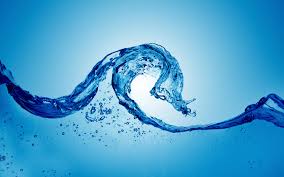
Rasa News Agency reports - Ayatollah Naser Makarem-Shirazi met with Hamid Chitchian, the Minister of Energy, and explained to him that “the issue of water and electricity usage is sensitive and there should be more information available to prevent the wastage of these utilities. Ayatollah Lotfollah Safi-Golpaygani also separately visited with Minister Chitchian and also discussed with him the issue of water shortages in Iran.
Ayatollah Makarem-Shirazi explained that the scarcity of water in Iran has not been properly conveyed to the people: “We must inform our people about this issue. They must be aware of the problems caused by the scarcity of water.”
During his meeting, Ayatollah Safi-Golpaygani told Minister Chitchian that water is a blessing from God and should be used properly as it is one of most important divine blessings and it is a source of life for mankind. His Eminence emphasized that we should thank God for the bountiful blessings which He has given us and not misuse or waste these blessings and be rational in our usage.
Ayatollah Makarem-Shirazi pointed to verses of the Quran and narrations from the Prophet Muhammad and his Infallible Family in regards to the necessity of being economical in the use of water and not wasting this valuable and God-given natural resource. The Quran says: “We have made of water every living thing” [21:30].
His Eminence explained that Islam has given much emphasis to the preservation of natural resources and being economical, and thus Islam also encourages Muslims to be careful in their usage of water. “Islam has spoken on the issue of being economical and not wasting any resource and has even emphasized that we must be careful that we do not use more water than is necessary when we do our ablutions,” he stressed.
Ayatollah Makarem-Shirazi explained that Islam is against obsessive-compulsiveness, especially in regards to cleanliness: “The waste of water and electricity is forbidden by Islam law and man must be careful and take into consideration how he uses it.”
He emphasized the droughts of recent years and that Iran’s citizens must be made aware of the critical situation the country faces because of the scarcity of water. “Those who waste water and electricity will have to answer for it [to God] on the Day of Judgement,” he warned.
He also warned that the authorities must pay attention to the deprived members of society and warned Department of Energy officials about the lack of the availability of water and electricity faced by some in the country but commended their efforts made to remedy the situation: “It should not be in our society that some people are still in need of water and electricity.”
The Grand Source of Emulation pointed to the water problems faced by the residents of the desert city of Qom. As a religious and historical city, Qom is visited by nearly 10 million pilgrims annually and the people of Qom have been suffering from water shortages and salty water for many years. “This issue must be addressed seriously and the problems must be solved because Qom is a holy city and is the host of many pilgrims and providing them with the necessities of life is our duty,” His Eminence stated.
Recently, Ma’soumeh Ebtekar, the head of the Environment Protection Organization has said that Iran is the most wasteful country in consuming water and energy. “Currently, Iran has the worst model in consumption of water and energy,” she said as she visited Kordestan province in late June.
111/112